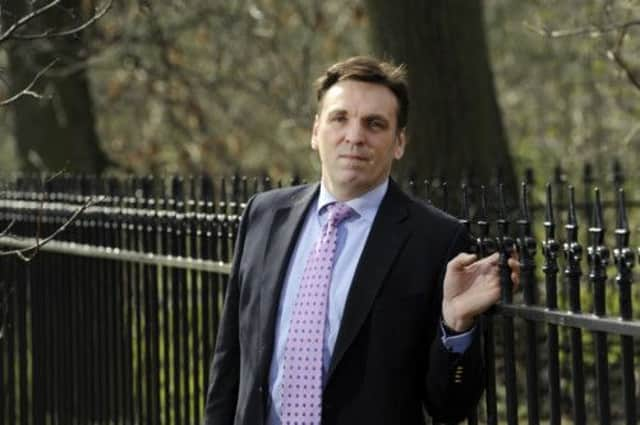ProStrakan has eye on future as firm returns to growth


Visitors may notice only one eye of the traditional Daruma doll, a symbol of good luck, has been painted. It is a custom in Japan that shows a target has been set. The other eye will be painted when the target has been met.
“We’re working on that second eye,” says Tom Stratford, ProStrakan’s chief executive, who reveals that – two years after the firm’s acquisition by Kyowa Hakko Kirin (KHK) – it has made its first “sustainable” operating profit since being co-founded by his father Harry 15 years ago.
Advertisement
Hide AdAdvertisement
Hide AdThe company, which gains regulatory approvals for drugs and distributes them mainly in Europe and the United States, has recovered from a supply issue in the US in 2010 and a £10 million loss in 2011.
Stratford was appointed in July 2011, succeeding acting chief executive Peter Allen, who led the company through the takeover and remains as chairman.
KHK left the management team intact, putting two of its own employees on the board, and the benefits of the partnership have come through swiftly, in both the expansion of the portfolio and turning around the numbers.
Last year it reported a £15m profit on a 23 per cent rise in turnover to £129m. Stratford expects this year to yield £28m of profit on £154m of revenue.
There had been a single year of profit as an independent company, but it was due to a non-recurring item.
Stratford says the latest figures, for the year to 31 December, show the company on a profitable growth path for the first time and that much of that is down to its ownership by KHK.
There had been understandable nervousness at the time of the £292m acquisition and concern among the 80 staff about their future. The company had already been subject to a potential rival offer.
But the new owner was interested in expansion, not contraction. Staff numbers at Galashiels have risen to 100 and the ProStrakan subsidiary now employs 400 around the world.
Advertisement
Hide AdAdvertisement
Hide Ad“KHK wanted to use our skills to gain more knowledge on late-stage regulation and commercialisation,” says Stratford. “They didn’t have those facets in their business in Europe and the US. Western markets behave differently to those in Asia.”
The deal has also broadened ProStrakan’s portfolio, giving it access to a flow of drugs being developed by its parent and to markets it could not previously have entered because of a limit on its capital and capability as a smaller firm. Two KHK drugs for leukaemia and Parkinson’s disease will be distributed by Pro-Strakan across Europe after a Tokyo-based subsidiary of the Kirin group received approvals in Japan.
ProStrakan itself is a merger of Strakan – its name was taken from Stratford and Prof John Kanis, the other founder – and the French company Proskelia in 2004. Tom Stratford joined the company almost from its foundation and has been leading the business development operations.
Last year it completed two significant deals, acquiring the worldwide rights to cancer relief drug Abstral, beyond Japan and the US, and the breast cancer product Fareston.
After the supply problems it had with its Sancuso medicine three years ago, ProStrakan will begin distributing the drug in Europe in September.
Stratford admits that the company must deal with an industry-wide financial squeeze across Europe as governments apply austerity measures to their drug-buying budgets.
“We are less affected than the bigger companies, as our smaller scale allows us to be a little more fleet of foot,” he said. “So we continue to show growth in a number of European countries, even though there has been a lot of price-cutting, particularly in Greece, Italy and Spain.”
It has prompted the company to look to other markets, and the KHK partnership has helped by giving it the scale and backing required to finance its move into emerging economies.